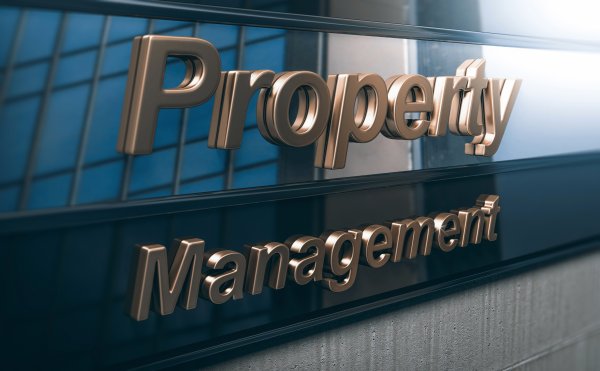
Real estate management involves running the project from start to completion. While it’s the developers and investors who’ll put their money in the real estate business, it’s the managers who ensure that resources like land, labor, construction materials and the estate’s management are successful. Therefore, for a successful real estate business, there should be proper management.

However, property management isn’t as easy as it may sound. A manager is the brain behind the whole project, determining what to do, when to do it, how to do it, and whom to engage. Often, the project can be segmented into different categories, such as land acquisition, property development, and marketing. All these can be under one manager or different managers.
For project managers, the key is finding the right strategy for running successful real estate projects.
How To Run Successful Real Estate Projects
As a project manager, the developers and the investors delegate the duties to you. Their problem in developing and managing real estate properties becomes your problem. Therefore, you need to ace your project management goals. Here are some of the tips to help you run a successful project management in real estate:
- Get A Customer Relationship Management (CRM) Software
Technology has been a significant player in business today, as it has lessened the burden of manual operations. In real estate, we’ve seen the use of real estate CRM by managers to manage and improve their relationships with customers. In fact, people in the real estate industry are among the top users of the software because of its many benefits.
With CRM, managers can generate more leads by personalizing information for each client in their database. Focusing on their clients helps to generate rapport, and it becomes easy for them to convert leads into customers. Additionally, the CRM software enables managers to track workflow, and ensure employee productivity by providing frictionless communication between teams.
These benefits of a CRM make it easy to run successful real estate projects without the hassle of manual management.
- Batch Your Work
Project managers are sometimes faced with so many tasks that need accomplishment. These tasks can sometimes be confusing, and often lead to poor productivity. Moreover, multitasking has never been a good idea, if you don’t have the labor force to handle these projects adequately.
Therefore, in your daily work, you should stop and focus on one project at a time. Batch your projects into time-blocks, and complete them in order of urgency. For example, if you’re managing a rental property that’s being built, you need to focus on the construction first before the marketing. This enables your work to flow appropriately.
- Schedule Your Time
Time management is and will always be vital to any project management. You need to know what you’ll do, and when you’ll do it. By preparing a well-defined schedule, you protect yourself from being overwhelmed by the activities. Never trust you can keep all the activities and events in your head, as you’ll forget some, which will affect your project’s success.
When you plan your time well, you can attend to the essential things in real estate. For example, you’ll be able to create time for client appointments, or attend functions beneficial to your project. You can use planners and calendars to schedule your activities, which will help you focus better. You’ll feel confident knowing nothing will slip through the cracks.
- Be Proactive
In project management, being proactive is always an advantage, as it allows you to stay ahead of the rest in anything you do. Practices such as sending your reminders to your tenants about the rent days before the due date, requiring clients to insure their properties, and so on will help you to avoid inconveniences.
Being proactive means thinking about the future, and trying to implement measures that will help you. For example, by requiring clients to insure their belongings, you’ll help them anticipate the problem before it happens. This generates good reviews on your firm, and good relationship with clients, which is important in achieving a successful property management.
- Be Ready To Learn
Project management has learning curve that never ends as new technologies, and other developments come up. Moreover, when starting in real estate management, there are chances when you’ll make several mistakes that will affect the success of your projects.
So, to be successful in project management, be ready to learn from your mistakes, and improve on them. You should also build networks in different areas, such as accounting and marketing, that are important in real estate. Learn about those areas. Being well-rounded will help you achieve more as a real estate manager.
- Outsource The Hard Tasks
Even after learning and being well-rounded in business, you may still find it challenging to run all the tasks, even with help from your team. And doing all the tasks by yourself and your team, could affect the overall success of your management.
As a result of this, it’s important to outsource some parts of the management you tend to have major problems running. For example, if your marketing strategies haven’t worked, you can outsource the marketing department to a company with more experience in real estate marketing.
- Have Long-Term Goals And Strategies
As a project manager in real estate, you should have well-laid goals that you aim to achieve. Such goals could be client acquisition and client retention. Other goals are automating the rent collection process, and reducing expenditure on the properties. Always ensure your strategies are achievable.
Once you lay down your long-term goals, you should also develop strategies to help you achieve these goals. When you’ve laid down your goals and strategies, you can focus on achieving them, and avoiding other distractions.
Conclusion
Running successful project management in real estate is achievable. Be ready to learn from your mistakes, adopt the right technology, be proactive, and plan your time well. With these strategies, you’ll see positive changes in your management.
These tips shouldn’t be a problem to implement. You can start slow then grow with time. Successful management is a continuous learning, and therefore, you won’t achieve it all at once. Make a plan and work toward it, and you’ll get there.



















